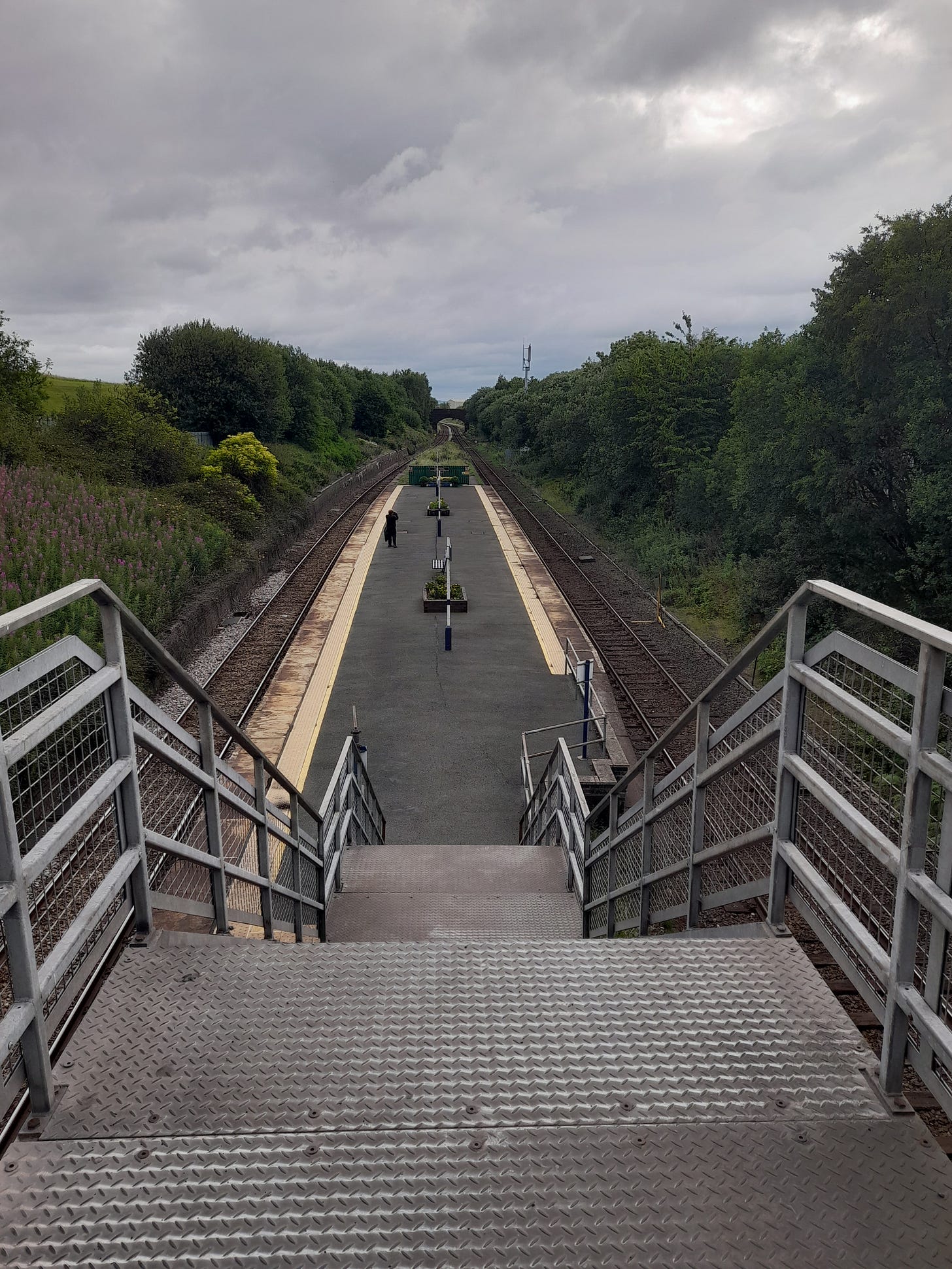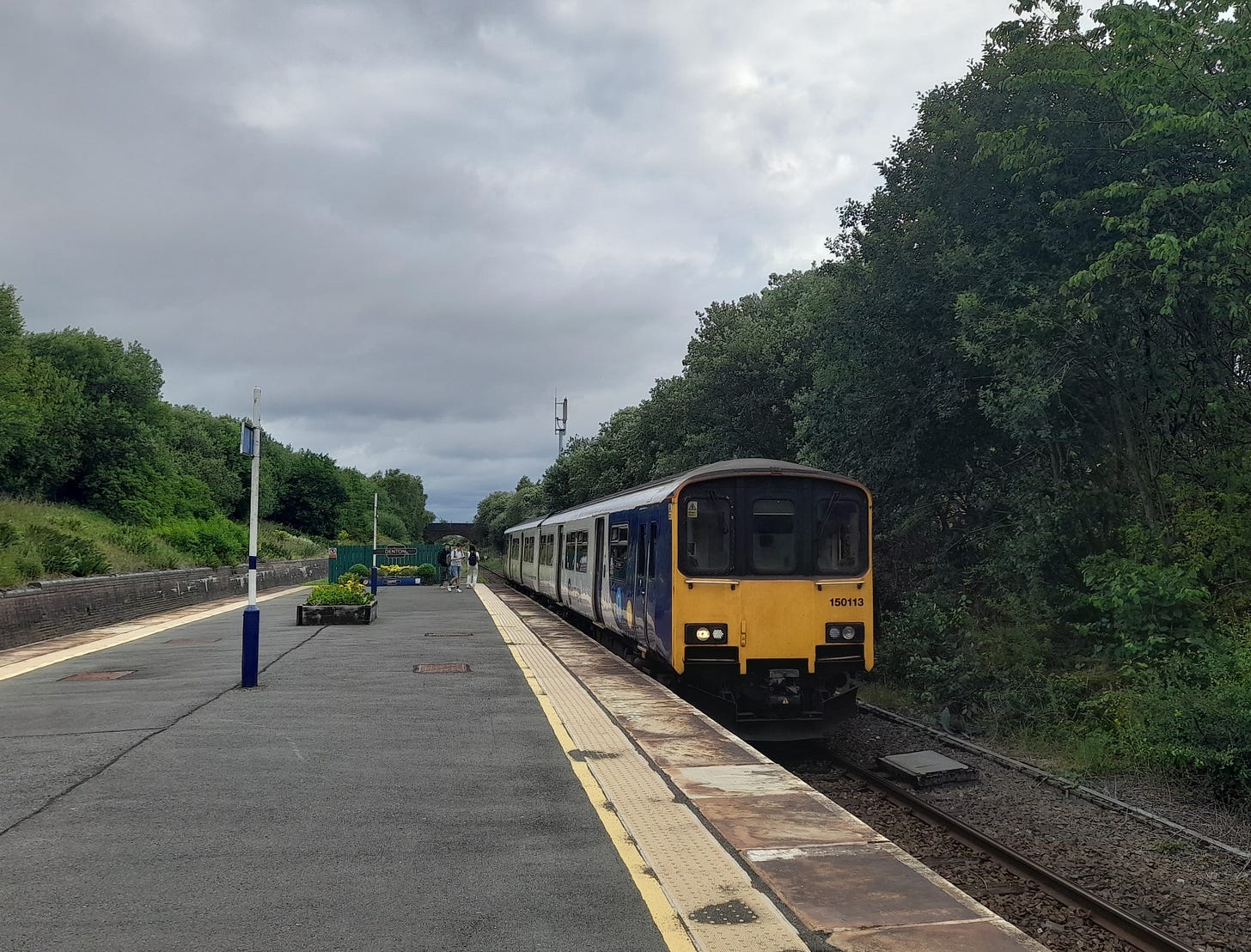Ghost Train
Denton station has no departure boards. Nor a ticket machine. There is no lighting either. Let alone a waiting room. There are three wooden boxes with neatly tended plants. The daisies in particular stand out, the shasta daisies. There is a bench, where I sit down at around twenty past eight on a Saturday morning next to a young man who introduces himself as Tom Irvin. This train enthusiast came from Hull the night before. He travelled to Denton, the birthplace of Mick Hucknall (Simply Red) for a special event: the 8.42 from Stalybridge to Stockport on The ‘Denton Flyer’.
It is crucial to be on time for this train. Anyone who misses it will have to wait a week for the next train to Stockport, a suburb of Manchester. In the meantime, apart from the train back to Stalybridge, only freight trains will pass. The train is a so-called ‘parliamentary service’. In order to keep a railway line running, there has to be at least one train per week. The alternative is to close the line. That would require an Act of Parliament and is more expensive than sending out a train once a week, complete with conductor.
Denton was the quietest station in Britain last year, with 54 passengers. That is just over one per week. That put it just ahead of Elton and Orston in Nottinghamshire. The bronze went to Kirton Lindsey in Lincolnshire. But on this summer Saturday morning it is surprisingly busy. Three young people arrive, with cameras. ‘It is difficult to retain this title,’ says Tom, ‘as soon as you are the quietest station in England, people come to watch, people like you and me.’ Only Shippea Hill and Gainsbrough Central have ever managed to retain the title.
In Victorian times Denton was the centre of felt hat production and not everyone is charmed by its current claim to fame. At the next station, Reddish South, the fifth quietest in the country, I meet some volunteers from Friends of Reddish South Station, a group of friends that merged with Friends of Denton Station last year. They want the line to return to a normal train service, as it was until the early 1990s. ‘Ideally, it would be extended to Manchester Victoria,’ explains chairwoman Kim Burrows, ‘there’s enough demand for it.’
There is political support for the fight, which began almost two decades ago. Andy Burnham, the mayor of Greater Manchester, is an advocate, but the Department for Transport doesn’t have any money (except to pay for a very expensive High Speed Line from Birmingham to London). The volunteers are convinced that sooner or later, daily diesel trains will be running again, even if only during peak hours. Until then, they will keep the platforms tidy, including the Victorian platforms that have been turned into wild gardens.







